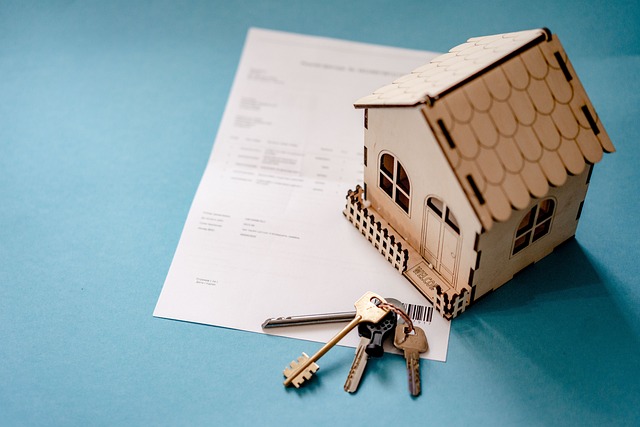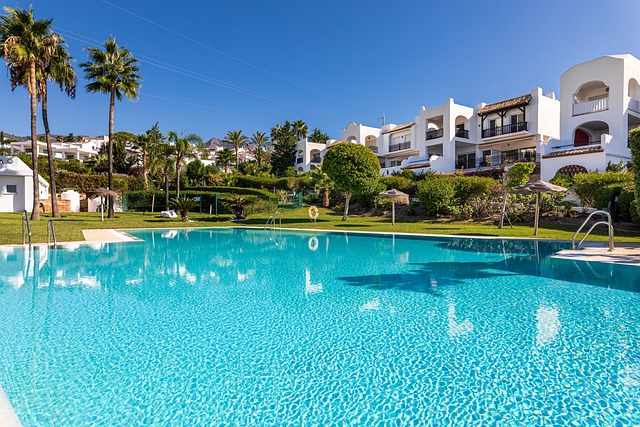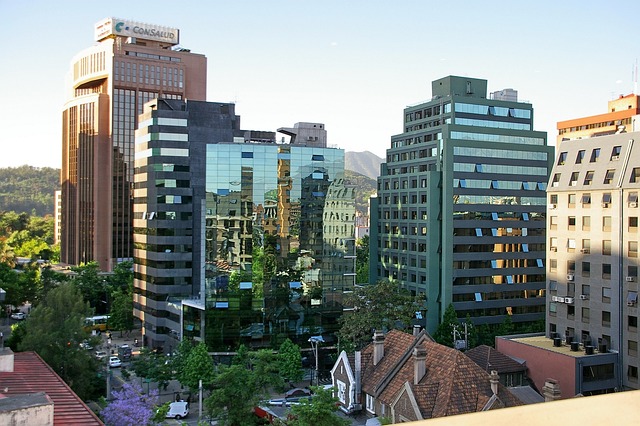When purchasing a second property in Singapore, it's crucial to understand the local real estate market's intricacies, including government policies like the Additional Buyer's Stamp Duty (ABSD) and Loan-to-Value (LTV) limits, which affect both costs and potential investment returns. The market offers a variety of properties from luxury condos to family homes, each with unique investment potential and financial implications. Prospective buyers must assess their preferences, investment strategies, and financial situations, considering that second property buyers face additional costs and stricter loan conditions. Financial advisors play a key role in navigating these complexities, especially when exploring innovative financing options like Real Estate Investment Trusts (REITs) for diversification and liquidity or alternative lending sources for more personalized and flexible terms. Staying informed on market rules, policy updates, and supportive measures such as HDB resale flat schemes and EBSS is essential for a successful investment in Singapore's dynamic property market.
Considering the intricacies of the Singapore property market, securing the best financing for a second property requires strategic planning and a thorough understanding of available options. This comprehensive guide navigates potential buyers through each critical step, from evaluating your financial standing to exploring tailored bank loans and government schemes. We delve into the nuances of real estate investment trusts (REITs) and private lending, ensuring you are well-equipped to make informed decisions in the competitive Singapore property landscape. Whether you’re an experienced investor or a first-time second home buyer, this article provides valuable insights for those looking to expand their real estate portfolio in Singapore.
- Understanding the Singapore Property Market for Second Property Purchases
- Assessing Your Financial Position and Eligibility Criteria
- Exploring Bank Loans and Mortgages Tailored for Second Properties
- Government Schemes and Grants for Multiple Home Ownership
- The Role of Real Estate Investment Trusts (REITs) in Financing Your Second Property
- Navigating Private Lending Options and Alternative Financing Solutions in Singapore
Understanding the Singapore Property Market for Second Property Purchases

Navigating the Singapore property market for second property purchases requires a comprehensive understanding of its dynamics and regulatory framework. Prospective buyers must first recognize that Singapore’s property landscape is characterized by a robust mix of public and private housing, catering to a wide range of needs and preferences. The government has implemented policies such as the Additional Buyer’s Stamp Duty (ABSD) and Loan-to-Value (LTV) limits to ensure a stable market that is accessible to both first-time homeowners and seasoned property investors. For individuals considering a second property, it is crucial to stay abreast of these policies as they can significantly impact the cost of acquisition and the potential for investment returns.
Moreover, the Singaporean real estate market offers diverse investment opportunities, from luxurious condominiums to suburban landed properties. The choice largely depends on personal preferences, investment strategy, and financial capacity. Buyers should also consider the location, property type, and historical performance of similar properties in the area to make an informed decision. Access to financing is another critical aspect; second-time buyers often have more options due to their established credit history, which can lead to better loan terms and interest rates. Engaging with reputable financial institutions or consultants who specialize in property finance within Singapore will provide valuable insights into the most suitable financing packages for purchasing a second property, ensuring a sound investment in one of Asia’s most vibrant property markets.
Assessing Your Financial Position and Eligibility Criteria

When contemplating the purchase of a second property in Singapore, it is imperative to meticulously evaluate your financial health and understand the eligibility criteria set forth by financial institutions and the government. Prospective buyers should begin by taking stock of their current financial obligations and assets. This includes reviewing income sources, existing loans, savings, and investment portfolios. It’s crucial to have a clear picture of your debt-to-income ratio as it directly influences your borrowing capacity. Additionally, one must consider the Total Debt Servicing Ratio (TDSR) and Mortgage Servicing Ratio (MSR) guidelines, which stipulate that monthly mortgage payments should not exceed 60% and 30% of one’s monthly income, respectively. These ratios are designed to ensure prudent borrowing and financial stability for homeowners.
Furthermore, potential buyers must familiarize themselves with the various financing options available in Singapore’s market. The Access to Monies (ATM) framework is a key eligibility criterion that requires individuals to have accumulated a minimum amount of equity from their first property before they can finance another. Additionally, understanding the different loan types, such as fixed-rate or floating-rate home loans, and their terms offered by banks and financial institutions, will aid in making an informed decision. Buyers should also explore government schemes like the CPF Housing Grant, which can assist with the downpayment for a second property. By thoroughly assessing your financial position and adhering to the eligibility criteria, you can navigate the Singaporean property market with greater confidence and clarity when buying your second property.
Exploring Bank Loans and Mortgages Tailored for Second Properties

In the dynamic property market of Singapore, securing the right financing for a second property can be as strategic as your initial home purchase. Prospective buyers often turn to bank loans and mortgages specifically designed for second properties, which come with their unique set of terms and conditions. These financial products are crafted to cater to the varying needs of investors or those looking to expand their real estate portfolio within the Lion City’s robust market. Unlike first-time homebuyers, individuals purchasing a second property may face different eligibility criteria and loan-to-value (LTV) limits, which are often more stringent. This is due to the higher risk profile associated with owning multiple properties.
The journey towards acquiring a second property in Singapore involves a meticulous exploration of various bank offerings. Potential investors should compare interest rates, tenures, and the flexibility of repayment options. Additionally, understanding the Total Debt Servicing Ratio (TDSR) framework is crucial, as it governs the amount of an individual’s monthly income that can be used to service all types of outstanding debt, including new mortgage obligations. By leveraging the insights provided by financial institutions and staying abreast of the latest regulations, buyers can navigate this complex financial landscape with confidence, ultimately finding a tailored loan or mortgage solution that aligns with their investment goals when buying a second property in Singapore.
Government Schemes and Grants for Multiple Home Ownership

When considering the purchase of a second property in Singapore, potential buyers should explore the various government schemes and grants designed to facilitate multiple home ownership. The Housing & Development Board (HDB) offers resale flat schemes where eligible applicants can purchase a resale flat without a five-year waiting time after selling their first flat, provided they meet specific criteria such as being a first-time applicant for a resale flat and satisfying the minimum occupancy period. Additionally, the Singaporean government has introduced the En bloc Sale Scheme (EBSS), which assists eligible applicants in purchasing a new flat when their current flat is sold for redevelopment due to an en bloc sale. This scheme helps homeowners to upgrade to a bigger flat or purchase a second property without the financial burden being too overwhelming.
For those looking to purchase private properties, the Additional Buyer’s Stamp Duty (ABSD) and Loan-to-Value (LTV) limits are key considerations. The ABSD is a tax imposed on individuals buying a second property in Singapore, aiming to curb speculative purchases. The LTV ratio sets a cap on the amount of loan a buyer can take out for their second property, which serves as a prudent measure to ensure financial stability. Prospective buyers should also keep abreast of any changes in policy or the introduction of new grants, as these can significantly impact the affordability and feasibility of purchasing a second property in Singapore. It is advisable to engage with a trusted financial advisor or real estate professional who can provide tailored advice based on the latest regulations and market trends.
The Role of Real Estate Investment Trusts (REITs) in Financing Your Second Property

In the vibrant property market of Singapore, Real Estate Investment Trusts (REITs) present a significant financing option for individuals looking to purchase a second property. REITs in Singapore have become a cornerstone investment vehicle, offering investors the opportunity to diversify their portfolios with real estate assets without the need to own or operate the properties directly. Prospective buyers of a second property can tap into these trusts for funding, as they provide liquidity and access to capital that can be used for mortgage down payments or to finance the entire acquisition. The advantage of REITs lies in their ability to pool resources from a multitude of investors, which translates to substantial funds available for real estate investments. Moreover, REITs often offer attractive dividend yields, which can complement an investor’s income and investment strategy when acquiring a second property in Singapore. They are structured to own and manage a portfolio of income-generating real estate across diverse sectors, from retail and hospitality to industrial and healthcare properties. This diversification not only mitigates risk but also offers investors exposure to various asset classes within the real estate sector, making REITs a financially sound and strategic choice for those purchasing a second property in Singapore’s dynamic market.
Navigating Private Lending Options and Alternative Financing Solutions in Singapore

Navigating private lending options is a strategic move for individuals looking to finance their second property in Singapore. Unlike traditional banking routes, private lending offers more flexible terms and conditions, often tailored to suit the unique financial situations of investors. High-net-worth individuals or investment groups frequently engage in this market, providing capital that can be advantageous for buyers seeking a more personalized loan experience. These lenders may consider factors beyond the conventional credit score, such as the potential of the property and the borrower’s proven track record in real estate investments. As a result, prospective buyers should conduct thorough due diligence to identify reputable private lenders and understand the associated terms, which may include higher interest rates compensating for the additional risk taken by the private financier.
In addition to private lending, alternative financing solutions present creative avenues for funding a second property in Singapore. These alternatives can range from peer-to-peer lending platforms to secured loans using assets other than the property itself as collateral. Additionally, some buyers explore equity staking arrangements where an investor contributes capital in exchange for a share of the property’s profits or equity. Another innovative option is the use of mortgage insurance products that can lower the down payment requirements, making it easier to acquire property without the full upfront investment. Each of these alternatives comes with its own set of advantages and risks, and buyers should carefully evaluate their financial goals and market conditions before committing to a particular financing solution. Whether opting for private lending or exploring alternative finance options, staying well-informed and strategically aligned with financial objectives is key when buying a second property in Singapore.
When considering the acquisition of a second property in Singapore, it’s crucial to navigate the market with a comprehensive understanding of the available financing options. This article has outlined key strategies, from evaluating your financial readiness to exploring various loan and mortgage products designed for second-time homebuyers. Additionally, government schemes and grants can offer substantial support, while Real Estate Investment Trusts (REITs) present an alternative avenue for funding. Private lending options and innovative financing solutions further broaden the possibilities for prospective buyers. By carefully considering these diverse pathways and aligning them with your financial situation and eligibility criteria, you can make informed decisions towards securing the best financing for buying a second property in Singapore.
